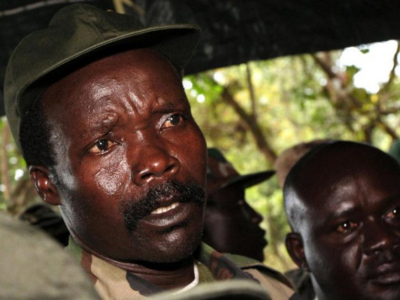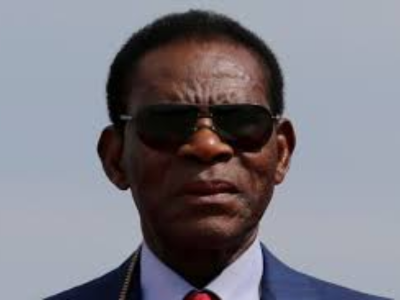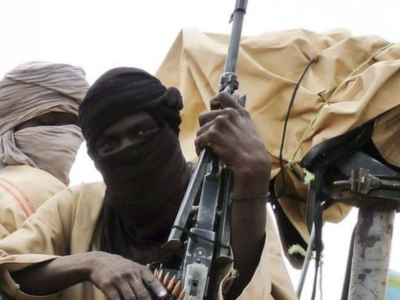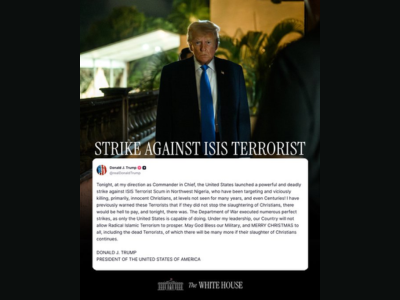ICC Launches First In Absentia Hearing Against Fugitive Warlord Joseph Kony
- by Admin.
- Sep 08, 2025

Credit:
The International Criminal Court has opened its first-ever confirmation of charges hearing in absentia against Ugandan warlord Joseph Kony, presenting evidence of war crimes and crimes against humanity tied to his leadership of the Lord's Resistance Army that ravaged northern Uganda for decades.
The proceedings at The Hague, mark a procedural milestone under the Rome Statute, allowing prosecutors to outline their case without the suspect's presence after exhaustive efforts to locate him failed.
Kony faces 33 counts, including 12 for crimes against humanity such as murder, enslavement, rape, and sexual slavery, and 21 for war crimes like conscripting child soldiers and pillaging. Pre-Trial Chamber III, led by Presiding Judge Althea Violet Alexis-Windsor, determined that Kony qualifies as a "person who cannot be found," with all reasonable steps taken to notify him of the charges and hearing date.
Prosecutors aim to establish substantial grounds for these allegations spanning 2002 to 2005, when the LRA's brutal campaign displaced over 1.5 million people, killed tens of thousands, and abducted around 60,000 children for use as soldiers, porters, and sex slaves.
The hearing, set to run through September 11, is not a full trial—Kony cannot be convicted without appearing before a Trial Chamber—but it could confirm charges and advance the case if he is captured.
A court-appointed defense team, led by British lawyer Peter Haynes, will challenge the prosecution's evidence and the validity of proceeding without Kony, arguing it risks violating his fair trial rights despite safeguards in the Statute.
Kony, now 63, founded the LRA in 1987 amid ethnic tensions following President Yoweri Museveni's rise to power, claiming divine visions to govern Uganda by the Ten Commandments.
Raised Catholic among the Acholi in northern Uganda, he started as an altar boy before turning to mysticism, consulting on ailments and curses.
His rebels' guerrilla tactics—ambushes, village raids, and mutilations—terrorized communities, forcing hundreds of thousands into displacement camps in the 1990s that drew criticism for worsening civilian hardship without curbing the violence.
By 2005, military pressure pushed the LRA into neighboring Sudan, Democratic Republic of Congo, and Central African Republic, where it splintered but continued sporadic attacks. The ICC issued an arrest warrant that year, later unsealed, but Kony evaded capture despite U.S. deployments of up to 250 troops starting in 2011 and a $5 million reward.
A 2012 viral video by Invisible Children spotlighted his child soldier atrocities, boosting global awareness, though it also faced backlash for oversimplification. Most LRA commanders have been killed or captured, but Kony persists in remote border areas, fueling myths of his invincibility among some in Acholi communities.
In Uganda, the case stirs mixed emotions. Survivors like Odong Kajumba, abducted in 1996 and forced to haul supplies across borders, express relief at the pursuit of justice. "He did many things bad," Kajumba said. "If they can arrest Kony, I am very happy." Yet frustration lingers over his elusiveness after 20 years, with some locals doubting he'll ever face court.
Victim representatives, including those from affected Acholi groups, will participate, voicing concerns in a process designed to expedite accountability for the estimated 100,000 deaths and widespread trauma.
The in absentia format, upheld by the ICC Appeals Chamber in June 2025, sets a precedent but is limited to cases like Kony's where suspects vanish despite searches—distinct from high-profile fugitives like Russian President Vladimir Putin or Israeli Prime Minister Benjamin Netanyahu, who remain in power.
Hearings will stream in English, French, and Acholi, with limited public access. As the three-day session unfolds, it underscores the ICC's push to deliver justice for long-suffering communities, even as Kony's shadow lingers in East Africa's ungoverned fringes.













0 Comment(s)